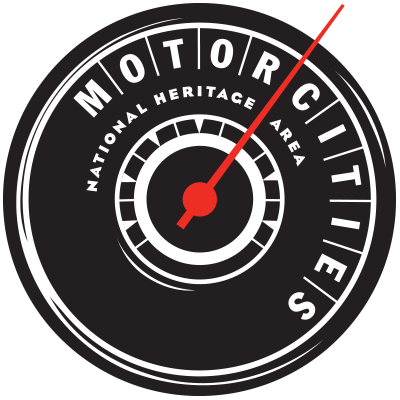September 11, 2018
MotorCities Receives $51,000 from Two Grants to help Fund Fort Street Bridge Interpretive Park Project
The MotorCities National Heritage Area Partnership recently received grants from the Ralph C. Wilson, Jr. Legacy Funds at the Community Foundation of Southeastern Michigan and the Rotary Club of Dearborn to support the Fort Street Bridge Interpretive Park. The project aims to create a park along the historic Fort Street Bridge to memorialize the 1932 Ford Hunger March, one of the most significant events in labor history.
The Ralph C. Wilson, Jr. Legacy Funds awarded MotorCities $41,000 with the vision of creating impact within the communities of Southeast Michigan. The funds were established to support areas important to Wilson during his lifetime, such as design/access and community assets.
The Rotary Club of Dearborn presented a grant in the amount of $10,000 toward the project as part of their program to plant trees and bushes throughout the Dearborn and Detroit area. The program stemmed from a challenge issued by Rotary International President Ian Risely, who called for all clubs to plant one tree for each club member last year.
The Fort Street Bridge Park idea arose from of a partnership known as the Fort Rouge Gateway Project, or FRoG, which includes 16 entities covering private enterprise, non-profit, local government and education, all striving to create a commemorative site in the shadow of the newly erected Fort Street Bridge. Partners include MotorCities, the University of Michigan-Dearborn, the City of Detroit, the City of Dearborn, Marathon Petroleum Co. LP, the Michigan Department of Transportation, United Auto Workers Local 600 and others.
This place-making project is going to transform an urban space into a park that both interprets the historical legacy of labor and industry, while offering a vision for a more resilient future, according to the FRoG partnership.
“Access to green space is an issue in Detroit’s lower-income communities, which are less likely to have healthy trees, nearby parks, and safe, welcoming environments for residents to enjoy the outdoors,” said Shawn Pomaville-Size, MotorCities’ executive director. “This project will demonstrate how we can reclaim such areas as cultural landscapes for social and recreational use, while providing education about labor and environmental history.
Fort Street Bridge Park construction is slated to begin later this year.
On March 7, 1932, thousands of workers marched from Detroit to the Ford River Rouge Factory in opposition to Ford’s treatment of current and laid off workers. Police and Ford security arrived to halt the march once it reached Dearborn, but fights broke out, resulting in five dead and over 60 injured. It became known as the Ford Hunger March and helped lead to the formation of the United Auto Workers in 1935.
The Community Foundation for Southeast Michigan is a full-service philanthropic organization leading the way to positive change in our region. As a permanent community endowment built by gifts from thousands of individuals and organizations, the Foundation supports a wide variety of activities benefiting education, arts and culture, health, human services, community development and civic affairs in the seven counties of southeast Michigan. The Ralph C. Wilson, Jr. Legacy Funds at the Community Foundation for Southeast Michigan honor Mr. Wilson’s charitable legacy by supporting efforts across the region in caregiving, design & access, and youth sports, as well as for community assets in Mr. Wilson’s home community of Grosse Pointe. For more information, please visit www.cfsem.org.
The Rotary Club of Dearborn is the city’s oldest service organization and is a proud member of Rotary International bringing 1.2 million members in over 34,000 individual clubs together to live the motto of “Service Above Self.”


